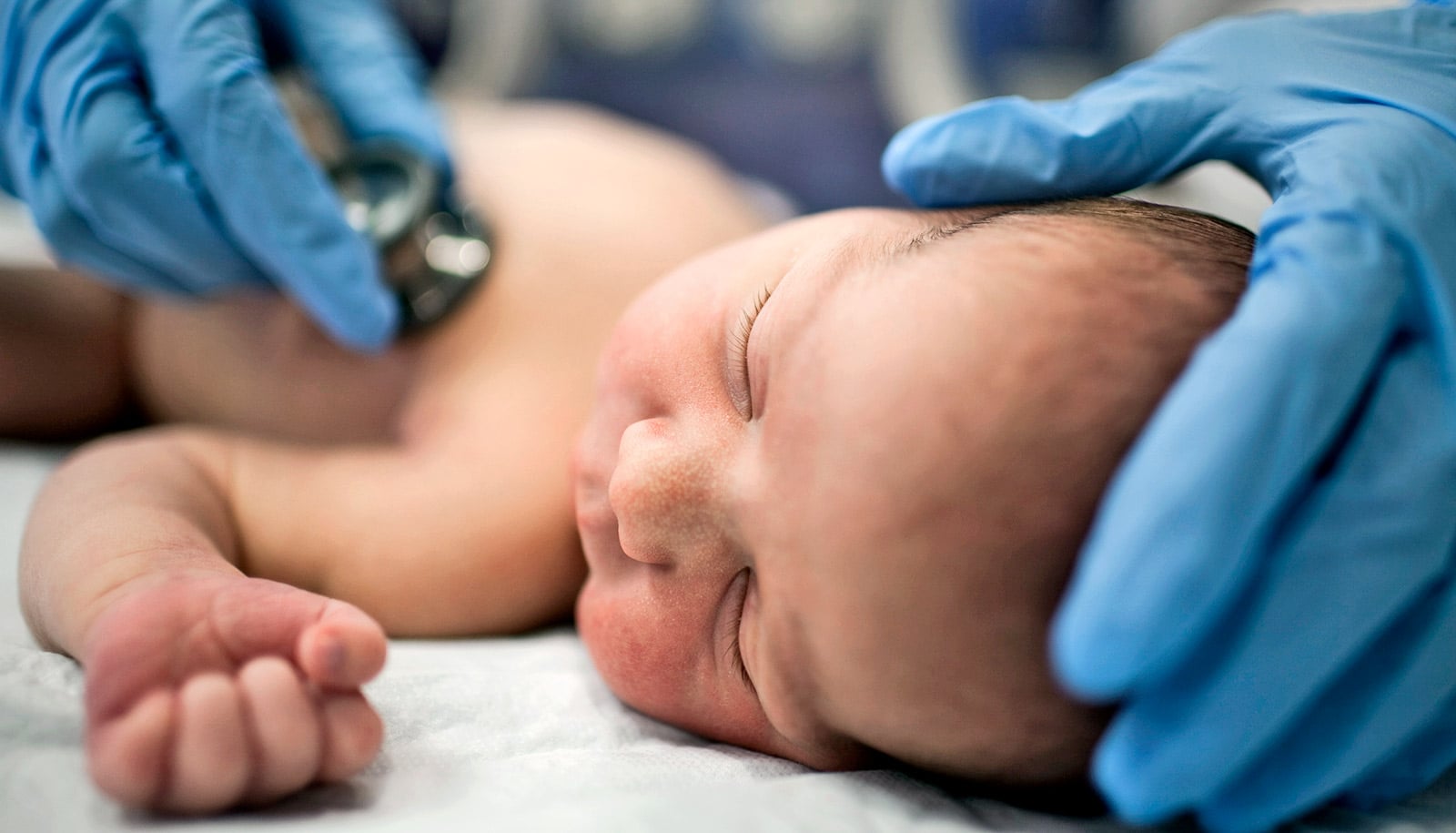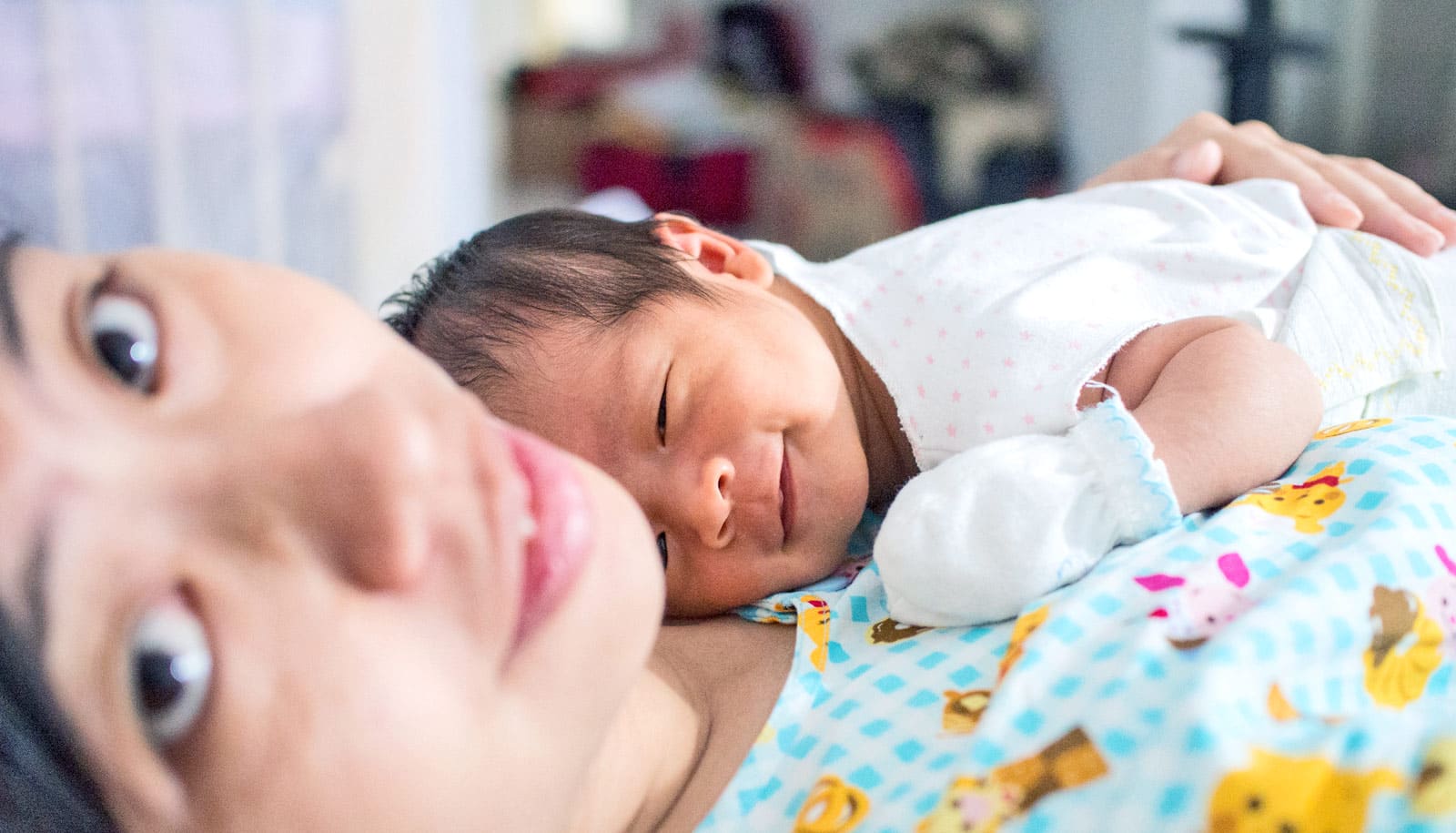
"Although it differs from current clinical standards of care, there's just not enough evidence to recommend preconception weight loss in women with obesity and unexplained infertility," says Richard Legro. (Credit: Getty Images )
Same baby odds when women with obesity lose weight pre-conception
There isn't enough evidence to support asking women with obesity to lose weight before trying to have a baby, researchers report.
New findings challenge the common advice for women with obesity to lose weight before trying to have a baby.
The study found that women with obesity and unexplained infertility who lost weight prior to starting infertility treatments did not have a greater chance of having a healthy baby than those who did not lose weight prior to starting therapy.
Of United States women between the ages of 20 and 40, 40% are estimated to have obesity, which has been associated with trouble getting pregnant, pregnancy complications, and loss. As a result, it is common for those women to receive guidance to lose weight prior to conception to increase their chances of having a healthy baby.
Richard Legro, professor and chair of the department of obstetrics and gynecology at Penn State Health Milton S. Hershey Medical Center, led the multi-center study of more than 300 women with obesity and unexplained infertility.
No significant differences
Participants had to have a body mass index greater than or equal to 30 kg/m 2 with regular ovulation and at least one year of unexplained infertility. Women with anovulation, where an egg doesn’t release from the ovary during the menstrual cycle, and polycystic ovary syndrome, where women often experience infrequent or abnormal menstrual cycles as a result of hormone imbalance in the ovaries, were not eligible to participate in the study.
The researchers divided participants into two groups. One group followed a protocol of increased physical activity and targeted weight loss through meal replacements and medication, while members of the other group increased their physical activity without guided weight loss. The women completed these programs for a period of 16 weeks before beginning three cycles of infertility therapy that consisted of ovarian stimulation and intrauterine insemination.
At the end of the study period, the researchers noticed no significant differences in the amount of pregnancies and healthy births between the two groups. Members of the guided weight loss group lost an average of 7% of their body weight, while the other participants experienced no significant weight loss. The results appear in PLOS Medicine .
Time to change advice?
According to Legro, the results add to a growing body of evidence that healthy births are not more likely to occur in women with obesity who lose weight prior to starting infertility treatment than those who have not lost weight prior to conception.
“Although it differs from current clinical standards of care, there’s just not enough evidence to recommend preconception weight loss in women with obesity and unexplained infertility,” Legro says.
While it may not increase a woman with obesity’s chances of delivering a healthy baby, the researchers note there may be other health benefits for these women if they lose weight. Some of the women in the weight loss group had decreased blood pressure and a reduction in waist circumference.
Additional coauthors contributed to the study from the University of Oklahoma Health Sciences Center; Augusta University; the University of North Carolina, Chapel Hill; the University of Pennsylvania; the University of California, San Francisco; the University of Rochester; Atrium Health; the University of Utah; the University of Virginia Center for Research in Reproduction; SUNY Upstate University Hospital; Wayne State University; Penn State College of Health and Human Development; Temple University; the University of Colorado School of Medicine; the Eunice Kennedy Shriver National Institute of Child Health and Human Development; and Yale University. Competing interests from authors can be viewed in the manuscript.
The Eunice Kennedy Shriver National Institute of Child Health and Human Development supported the work, as did the Penn State Clinical and Translational Science Institute and the Yale Center for Clinical Investigation through the National Center for Advancing Translational Sciences of the National Institutes of Health. Nutrisystem and Fitbit also provided discounts for study materials.
Source: Penn State
The post Same baby odds when women with obesity lose weight pre-conception appeared first on Futurity .
Share this article:
This article uses material from the Futurity article, and is licenced under a CC BY-SA 4.0 International License. Images, videos and audio are available under their respective licenses.


